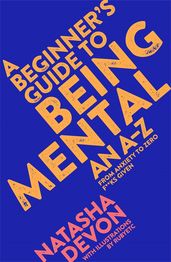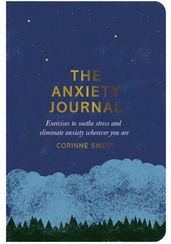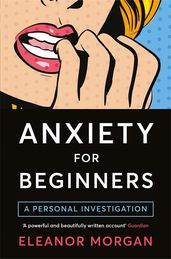The 9 best books to help with anxiety
Discover solace from anxiety with these books chosen by clinical psychologist and author, Dr Kirren Schnack.

Anxiety self-help books provide invaluable insights, practical techniques, and expert perspectives for effectively managing your anxiety. These resources offer a chance for self-reflection, reassuring you that you're not alone, and present a structured approach to learning about anxiety — helping you comprehend its triggers and effects. Ultimately, they equip you with effective tools to alleviate symptoms and enhance your overall mental well-being.
Anxiety is a natural response that helps you adapt to stress and potential threats. It's designed to assist you by enhancing both your mental and emotional abilities when you need this the most. However, when anxiety becomes problematic, it exhibits certain indicators even in the absence of any real danger — such as excessive worrying, a heightened fear of potential threats, and experiencing both physical and emotional symptoms. Anxiety often leads to adopting avoidance behaviours as a way of coping, which can result in withdrawing from activities or situations that trigger distress. Additionally, seeking reassurance or repeatedly engaging in certain actions becomes a frequent occurrence as you try your best to alleviate the discomfort and distress that anxiety brings.
The wonderful news is that instead of allowing anxiety to control your life, you can cultivate a sense of mastery over it through these self-help books. They contain excellent ideas, insights and practical skills to empower you to gain control over your anxiety. In an overwhelming world, these books offer you a path to finding inner calm.
Ten Times Calmer
by Kirren Schnack
Dr Kirren Schnack is here to tell you that your anxiety isn’t here to stay. As an Oxford-trained and practicing NHS clinical psychologist with twenty years experience, she offers a first aid kit of tools to help you understand what you’re going through and change how you’re feeling — and it might just be easier than you think. The ten chapters cover everything from dealing with anxious thoughts and stress to managing uncertainty and safely tackling trauma, with each tip taking you one step closer to an anxiety-free life.
A Beginner's Guide to Being Mental
by Natasha Devon
An A-Z from Anxiety to Zero F**ks Given — this is a comprehensive guide to mental health from one of the UK's foremost experts, Natasha Devon. Answering questions such as 'am I normal?' and 'does therapy work?', Natasha provides an accessible manual to help demystify the full spectrum of mental health. Statistically, one in three of us will experience symptoms of a mental illness during our lifetimes. A Beginner's Guide to Being Mental is for anyone who wants to have this essential conversation, written with a combination of expertise, personal experience and humour.
The Anxiety Journal
by Corinne Sweet
Supportive and uplifting, and beautifully illustrated by Marcia Mihotich, this is a journal for anyone who struggles with anxiety, whether in the form of phobias, social anxiety, generalized anxiety (GAD) or day-to-day worrying. Anxiety disorders can lead you into a spiral of stress and worry, and interfere with your everyday life. Whether you're awake at 4am unable to turn off those racing thoughts, or struggling to get yourself together before a presentation, The Anxiety Journal will help to soothe stress and reduce worry, identify negative thought-cycles, and provide you with techniques to combat anxiety wherever you are.
Anxiety for Beginners
by Eleanor Morgan
Eleanor Morgan offers an insight into the often crippling effects of anxiety disorders, her book serving as a guide for those living with anxiety and for people who have friends or family who suffer. Eleanor combines her own experience with expert research to investigate what contributes to so many of us suffering around the world. Anxiety for Beginners is, at its heart, a book about acceptance, as Morgan discovers the ways in which people can live a life that is not just manageable but enjoyable, learning to accept anxiety as part of who we are rather than spending a life fighting and being ashamed of it.
The Mindfulness and Acceptance Workbook for Anxiety
by John P. Forsyth & Georg H. Eifert
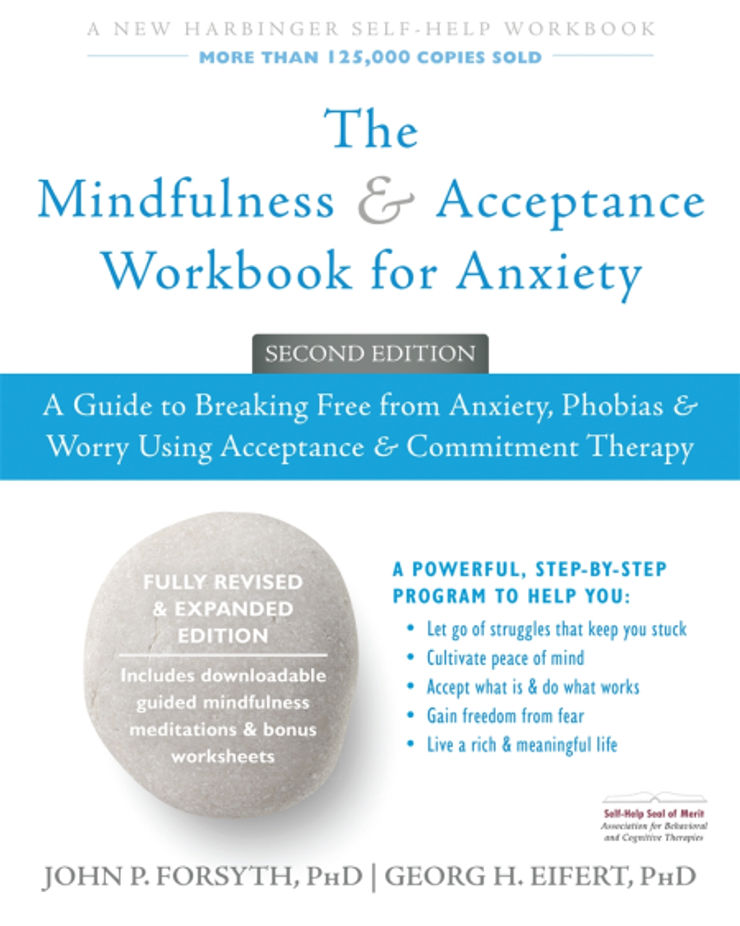
While you can't simply “turn off” anxious thoughts and feelings like a light switch, there are ways you can take back your life and stop avoiding the things that cause you anxiety. This book is here to show you how. Including compelling new ACT exercises, ways to practice acceptance, mindfulness, kindness, and compassion, and confront trauma, John P. Forsyth and Georg H. Eifert are here to help you shift your focus away from anxiety and onto what you really want your life to be about — no matter how your anxiety manifests.
Self-help for Your Nerves
by Dr Claire Weekes
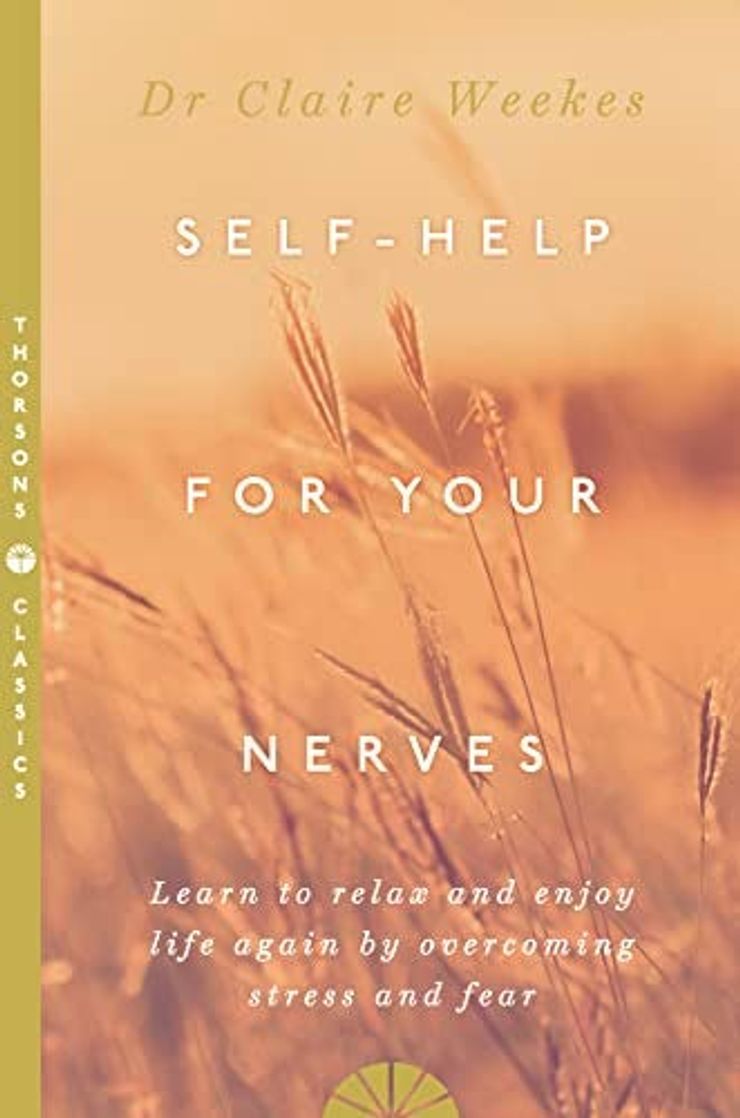
Self-Help for Your Nerves is a seminal self-help book that offers guidance and practical techniques for individuals struggling with anxiety, panic attacks, and nervous disorders. Published in 1962, this book remains a timeless resource for those seeking relief from the debilitating effects of anxiety. A pioneering psychiatrist and anxiety specialist, Dr Claire Weekes presents a compassionate and accessible approach to understanding and managing nervous conditions, emphasising acceptance, facing fear, the anxiety cycle, and long-term recovery. The straightforward approach has made this a classic in the field of self-help for anxiety and nervous disorders
The Happiness Trap
by Russ Harris
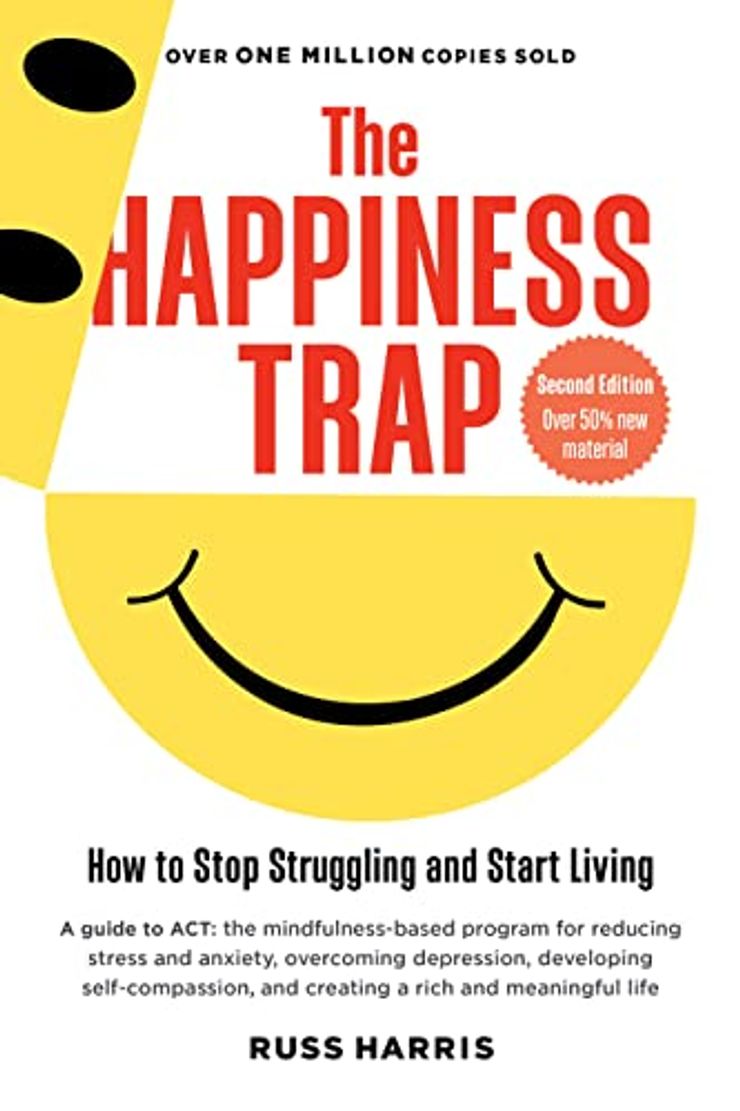
In a world filled with the relentless pursuit of happiness, The Happiness Trap offers a lifeline to those who feel forced to put on a brave face while battling inner turmoil. Drawing from the wisdom of Acceptance and Commitment Therapy (ACT), this empowering book equips readers with an extensive toolkit for personal growth. Whether you're lacking confidence, facing illness, coping with loss, working in a high-stress job, or suffering from anxiety or depression, this book will show you how to build authentic happiness, from the inside out.
How to Be Your Own Therapist
by Owen O'Kane
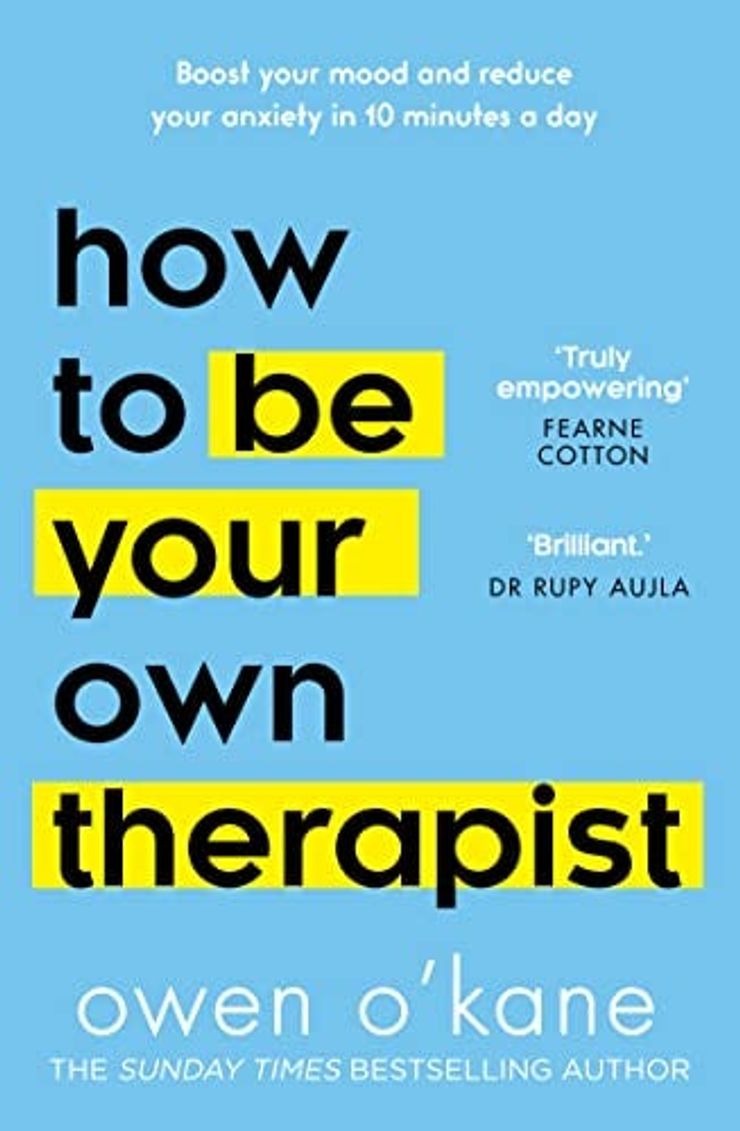
Owen O'Kane, a seasoned psychotherapist and bestselling author, offers a pragmatic roadmap to enhance mental well-being in our stress-laden modern lives. The relentless juggle of work, relationships, and financial pressures often leaves little room for self-care, trapping us in unproductive habits and anxious thoughts. O'Kane presents a collection of practical, time-efficient techniques drawn from evidence-based therapies like CBT and mindfulness. By demystifying therapeutic principles and suggesting daily exercises that demand just 10 minutes of your time, this book equips you with the tools needed to thrive, even in challenging circumstances.
The Worry Trick
by David A Carbonell
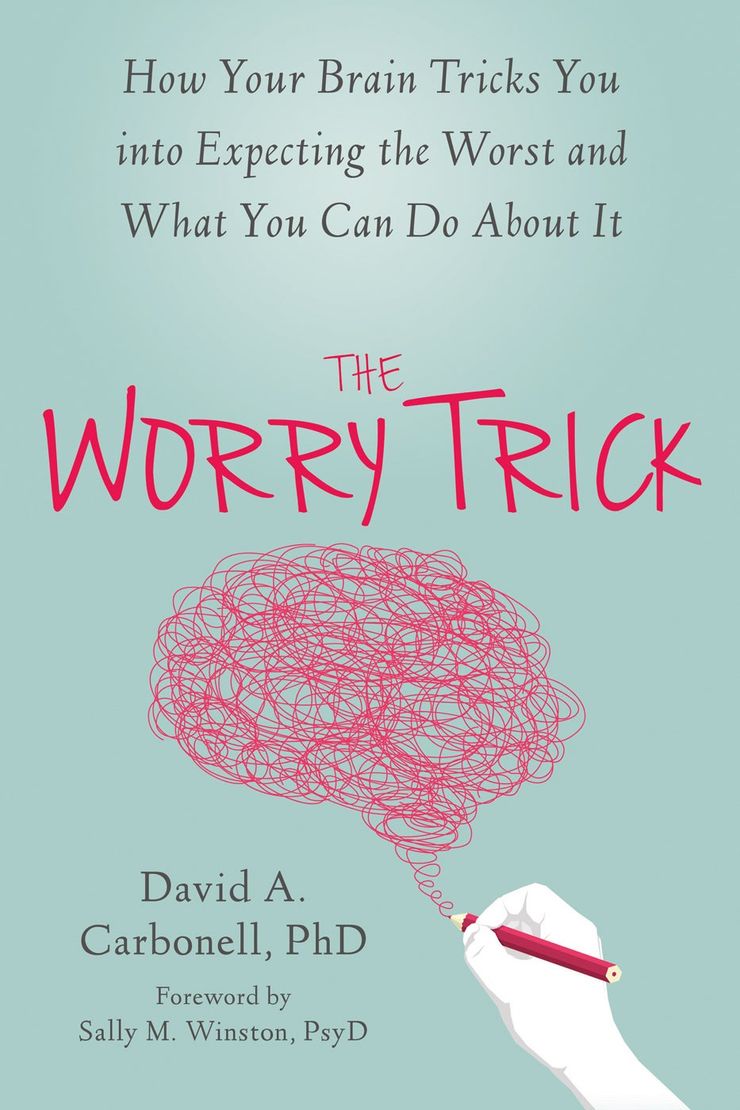
Anxiety can cause us to second-guess ourselves, fret about the unknown, and inundate our days with apprehension and turmoil. Rooted in Acceptance and Commitment Therapy (ACT) and Cognitive Behavioral Therapy (CBT), this book serves as a guiding light to break free from the relentless cycle of worry. Contrary to conventional wisdom that advises avoidance or resistance, these techniques unveil the deceptive nature of anxious thoughts and the counterproductive nature of avoidance strategies. If you're ready to start observing your anxious feelings with distance and clarity rather than getting tricked once again, this book will show you how.
You may also like. . .
Unstressable
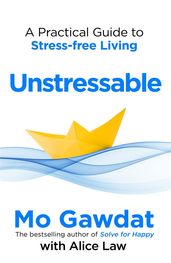
Unstressable applies Mo Gawdat's brilliant engineering mind and Alice Law's psychology and stress-management expertise to the 'stress pandemic'. Mo explains how he made it through the most acutely stressful times in his own life, and the book touches on the idea of post-traumatic growth – both on a personal level and in response to huge events that affected all of us, such as the COVID pandemic and subsequent economic turmoil. Practical exercises will help you build up the skills to manage stress no matter your circumstances, backed up by neuroscience and accessible psychology.
The Nervous System Reset
by Jessica Maguire
Are overwhelming anxiety and emotional issues affecting your ability to perform at work or just live your life normally? Do you want to learn how to regulate your stress and pain and feel at home in your body again? Get the tools you need to uncover the power of your nervous system and harness it for improved health. Physiotherapist and neurophysiology expert Jessica Maguire wants to help you understand the root cause of many of our health issues – our dysregulated nervous system. In The Nervous System Reset, Maguire explains why your vagus nerve is key to emotional, digestive and physical health, and how to engage it to help reset your nervous system.

